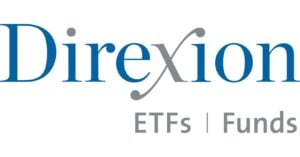We adhere to strict standards of editorial integrity to help you make decisions with confidence. Some or all links contained within this article are paid links.
Despite its ups and downs, the U.S. stock market has long been a go-to destination for investors, with the benchmark S&P 500 delivering a return of more than 90% over the past five years. Yet investing legend Jim Rogers isn’t feeling optimistic — far from it.
“I sold all my U.S. stocks recently, because I’ve seen this party before,” he said in a recent interview with Wealthion. “You see a lot of new people talking about how much fun it is, how easy it is … I hope it stays easy to make money for lots of people for the rest of history — [but it] never has.”
Don’t miss
- I’m 49 years old and have nothing saved for retirement — what should I do? Don’t panic. Here are 6 of the easiest ways you can catch up (and fast)
- Want an extra $1,300,000 when you retire? Dave Ramsey says this 7-step plan ‘works every single time’ to kill debt, get rich in America — and that ‘anyone’ can do it
- Robert Kiyosaki warns of a ‘Greater Depression’ coming to the US — with millions of Americans going poor. But he says these 2 ‘easy-money’ assets will bring in ‘great wealth’. How to get in now
Rogers pointed out that more and more investors are becoming “exuberant and confident,” and he believes that kind of sentiment often leads to trouble.
One problem he highlighted is the sheer size of America’s debt.
“The U.S. is the largest debtor nation in the history of the world. And I sit and look at the numbers, and I say, can’t they read in Washington? Don’t they know what’s happening?” he said.
According to Treasury Department data, the U.S. national debt now stands at $36.58 trillion.
Rogers also warned that this time, even the Federal Reserve “doesn’t have unlimited amounts of money that can save us all,” adding that the central bank “usually makes things worse.”
His suggestion? Tread carefully.
“My advice is, be very, very careful wherever you think about investing. This is a rare time in investing history,” he stated.
If you share these concerns, here’s a look at a few strategies to help protect yourself.
A classic safe haven
Rogers finds refuge in precious metals.
“I own a lot of gold and silver,” he admitted. “I am not a seller of gold and silver. I hope that someday my children have all the gold and silver, because I don’t see any reason for any human being to sell gold and silver in the 21st century.”
Gold and silver have long been considered popular hedges against inflation. Unlike fiat currency, these metals cannot be printed in unlimited quantities by central banks.
At the same time, investors often look to these metals amid market volatility and global instability, as their value isn’t tied to any specific country, currency or economy.
In just the last 12 months, the price of gold has surged by roughly 40%.
One way to invest in gold that also provides significant tax advantages is to open a gold IRA with the help of Goldco.
Gold IRAs allow investors to hold physical gold or gold-related assets within a retirement account, which combines the tax advantages of an IRA with the protective benefits of investing in gold, making it an attractive option for those looking to potentially hedge their retirement funds against economic uncertainties.
With a minimum purchase of $10,000, Goldco offers free shipping and access to a library of retirement resources. Plus, the company will match up to 10% of qualified purchases in free silver.
If you’re curious whether this is the right investment to diversify your portfolio, you can download your free gold and silver information guide today.
Read more: You don’t have to be a millionaire to gain access to this $1B private real estate fund. In fact, you can get started with as little as $10 — here’s how
Income, even in a down market
Like stocks, real estate has its cycles, but it doesn’t rely on a booming market to generate returns.
Even during a recession, high-quality, essential real estate can continue to produce passive income through rent. In other words, you don’t have to wait for prices to rise to see a payoff — the asset itself can work for you.
Legendary investor Warren Buffett has often pointed to real estate as a prime example of a productive, income-generating asset.
In 2022, Buffett stated at an annual shareholders meeting that if you offered him “1% of all the apartment houses in the country” for $25 billion, he would “write you a check.”
Traditionally, investing in real estate meant buying property and becoming a landlord. But new investing platforms are making it easier than ever to tap into the real estate market.
For accredited investors, Homeshares gives access to the $35 trillion U.S. home equity market, which has historically been the exclusive playground of institutional investors.
With a minimum investment of $25,000, investors can gain direct exposure to hundreds of owner-occupied homes in top U.S. cities through their U.S. Home Equity Fund — without the headaches of buying, owning or managing property.
With risk-adjusted target returns ranging from 14% to 17%, this approach provides an effective, hands-off way to invest in owner-occupied residential properties across regional markets.
If you’re not an accredited investor, crowdfunding platforms like Arrived allow you to enter the real estate market for as little as $100.
You can gain access to shares of SEC-qualified investments in rental homes and vacation rentals, curated and vetted for their appreciation and income potential.
Backed by world-class investors like Jeff Bezos, Arrived makes it easy to fit these properties into your investment portfolio regardless of your income level. Their flexible investment amounts and simplified process allows accredited and non-accredited investors to take advantage of this inflation-hedging asset class without any extra work on your part.
What to read next
- Financial aid only funds about 27% of US college expenses — but savvy parents are using this 3-minute move to cover 100% of those costs
- Here are the 6 levels of wealth for retirement-age Americans — are you near the top or bottom of the pyramid?
- Here are 5 ‘must have’ items that Americans (almost) always overpay for — and very quickly regret. How many are hurting you?
- How much cash do you plan to keep on hand after you retire? Here are 3 of the biggest reasons you’ll need a substantial stash of savings in retirement
Money doesn’t have to be complicated — sign up for the free Moneywise newsletter for actionable finance tips and news you can use. Join now.
This article provides information only and should not be construed as advice. It is provided without warranty of any kind.


